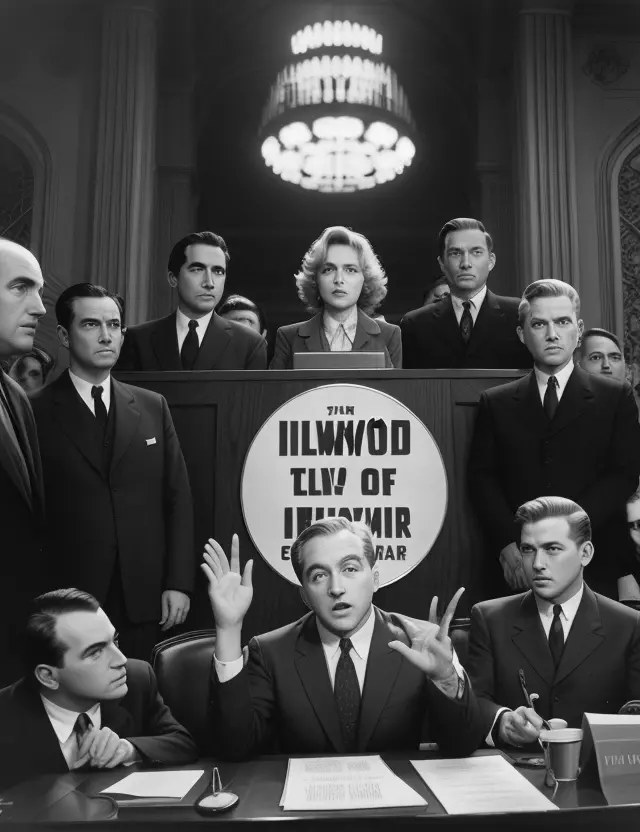Hollywood Ten and the Red Scare: Anti-Communist Sentiment Evident in Contempt of Congress (1947)
The McCarthy Era and the Persecution of Hollywood Writers and Directors

Introduction
On November 24, 1947, the Red Scare reached Hollywood as the House Un-American Activities Committee cited a group of writers and directors, known as the Hollywood Ten, for contempt of Congress. This event marked a significant moment in the McCarthy Era, reflecting the prevailing anti-communist sentiment of the time.
The Hollywood Ten
The Hollywood Ten comprised prominent writers and directors who were accused of having communist affiliations. Refusing to cooperate with the House Un-American Activities Committee's inquiry into alleged communist influence in the entertainment industry, they were cited for contempt of Congress.
Anti-Communist Sentiment
The contempt charges against the Hollywood Ten were part of a broader wave of anti-communist sentiment that swept through American society during the Red Scare. The fear of communist infiltration led to investigations and purges in various sectors, including the entertainment industry.
Impact on Hollywood
The repercussions were severe, with the Hollywood Ten facing blacklisting, impacting their careers and the freedom of expression within the film industry. Many professionals in Hollywood were affected by the era's restrictive atmosphere, and the blacklist persisted for years.
Legacy and Lessons
The Hollywood Ten incident stands as a stark reminder of the dangers of political persecution and the suppression of dissent. It serves as a historical lesson about the importance of safeguarding freedom of expression, even in times of political tension and ideological division.



